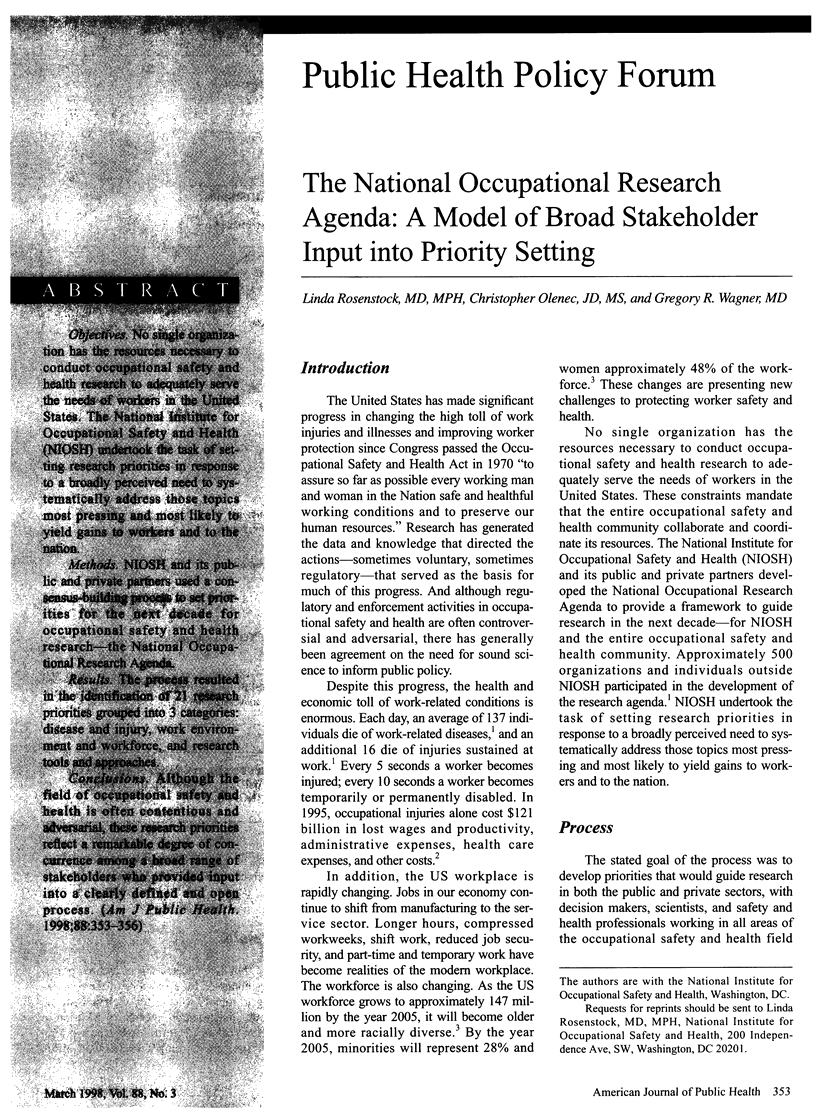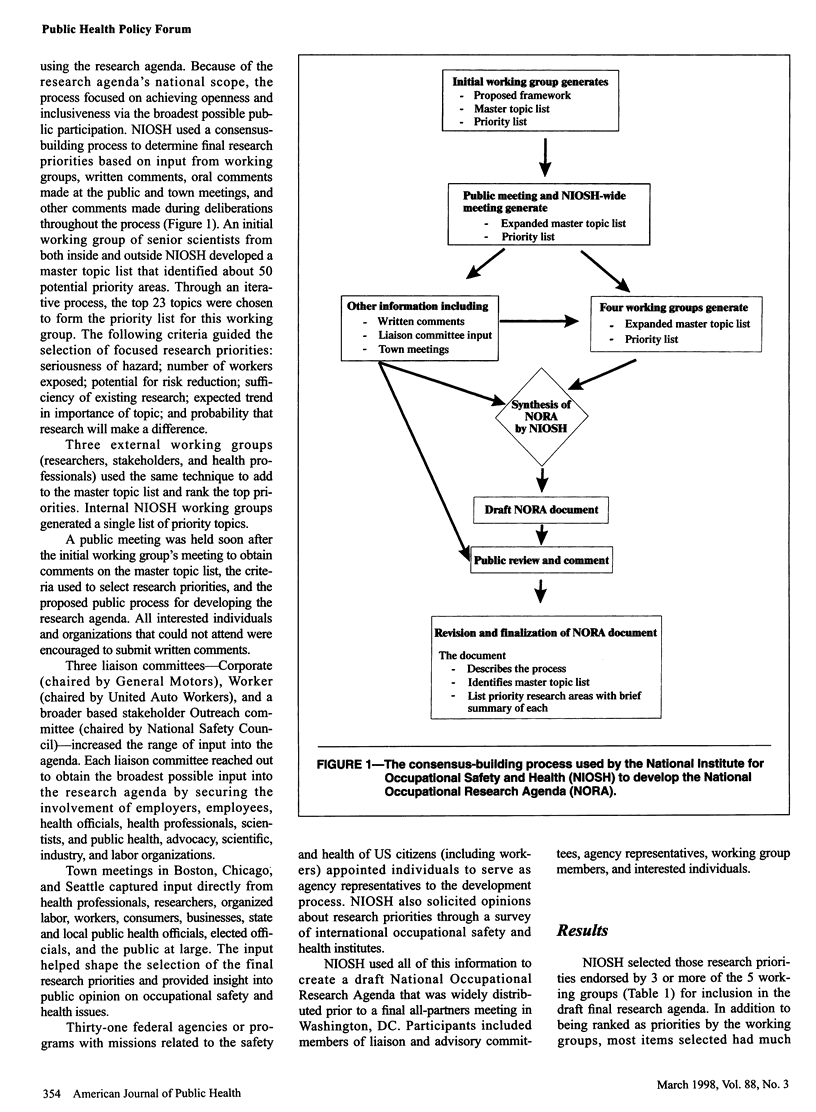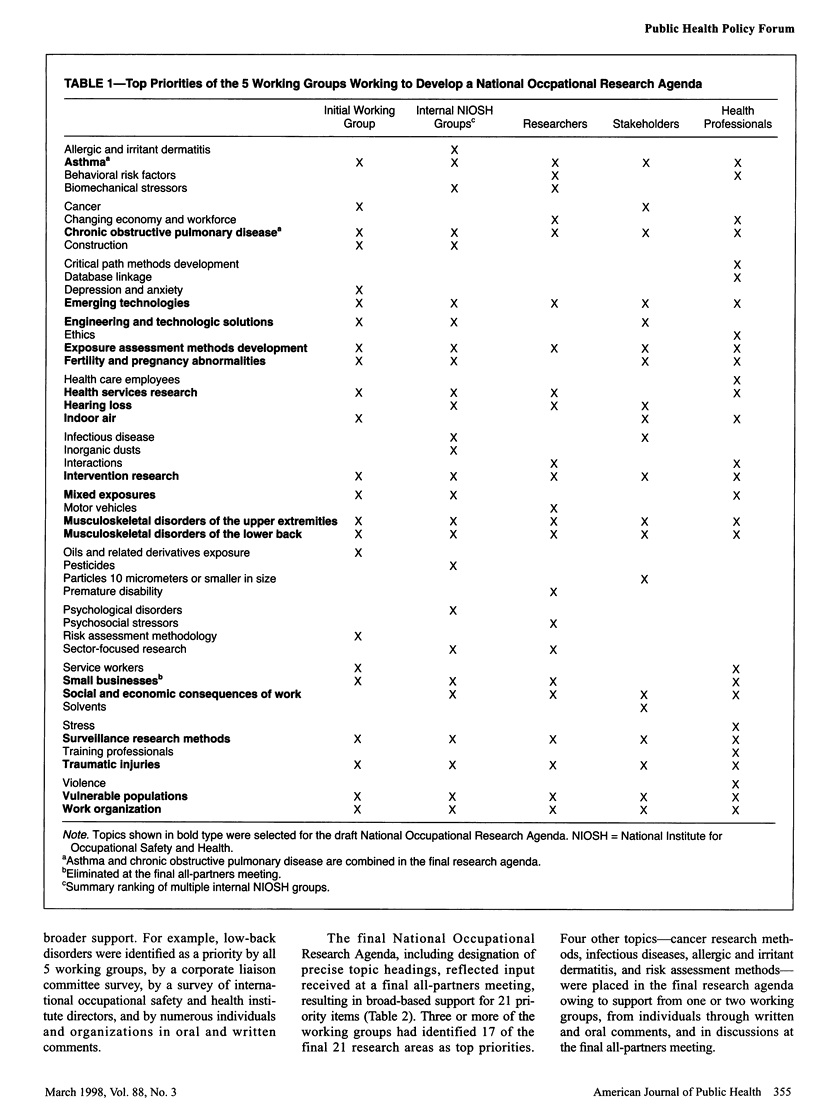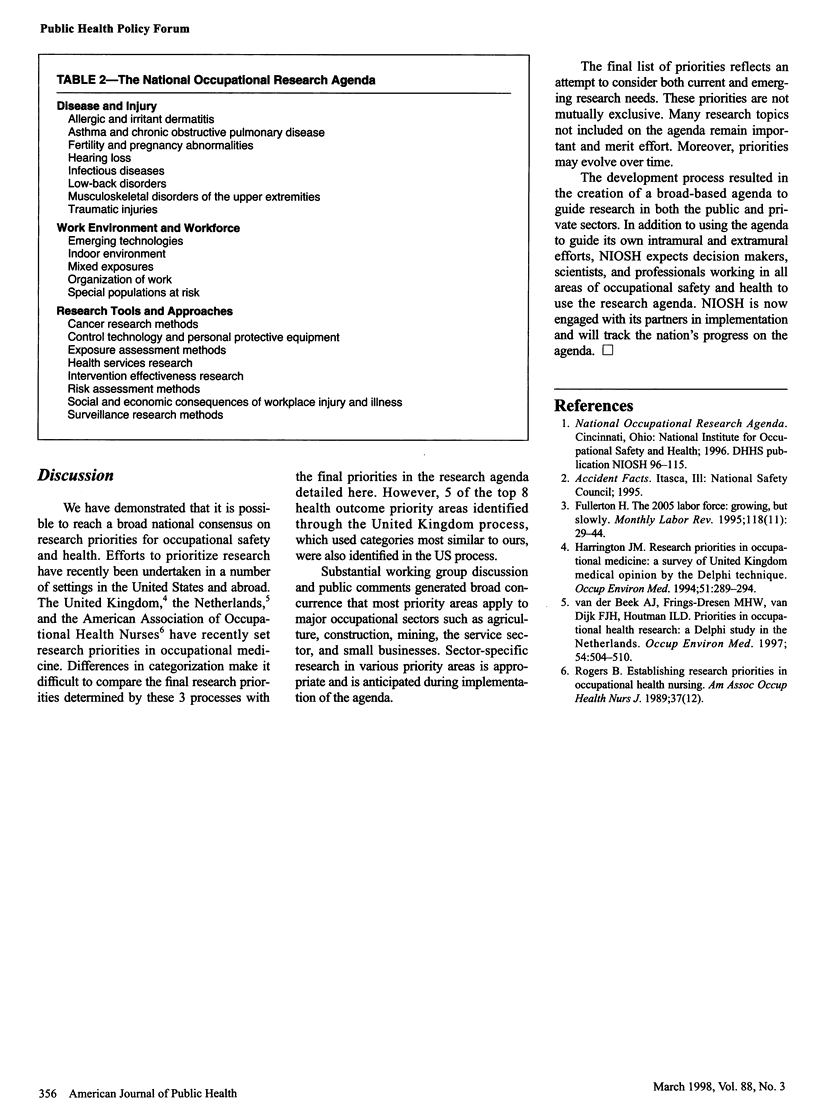Abstract
OBJECTIVES: No single organization has the resources necessary to conduct occupational safety and health research to adequately serve the needs of workers in the United States. The National Institute for Occupational Safety and Health (NIOSH) undertook the task of setting research priorities in response to a broadly perceived need to systematically address those topics most pressing and most likely to yield gains to workers and to the nation. METHODS: NIOSH and its public and private partners used a consensus-building process to set priorities for the next decade for occupational safety and health research--the National Occupational Research Agenda. RESULTS: The process resulted in the identification of 21 research priorities grouped into 3 categories: disease and injury, work environment and workforce, and research tools and approaches. CONCLUSIONS: Although the field of occupational safety and health is often contentious and adversarial, these research priorities reflect a remarkable degree of concurrence among a broad range of stakeholders who provided input into a clearly defined and open process.
Full text
PDF



Selected References
These references are in PubMed. This may not be the complete list of references from this article.
- Harrington J. M. Research priorities in occupational medicine: a survey of United Kingdom medical opinion by the Delphi technique. Occup Environ Med. 1994 May;51(5):289–294. doi: 10.1136/oem.51.5.289. [DOI] [PMC free article] [PubMed] [Google Scholar]
- van der Beek A. J., Frings-Dresen M. H., van Dijk F. J., Houtman I. L. Priorities in occupational health research: a Delphi study in The Netherlands. Occup Environ Med. 1997 Jul;54(7):504–510. doi: 10.1136/oem.54.7.504. [DOI] [PMC free article] [PubMed] [Google Scholar]



